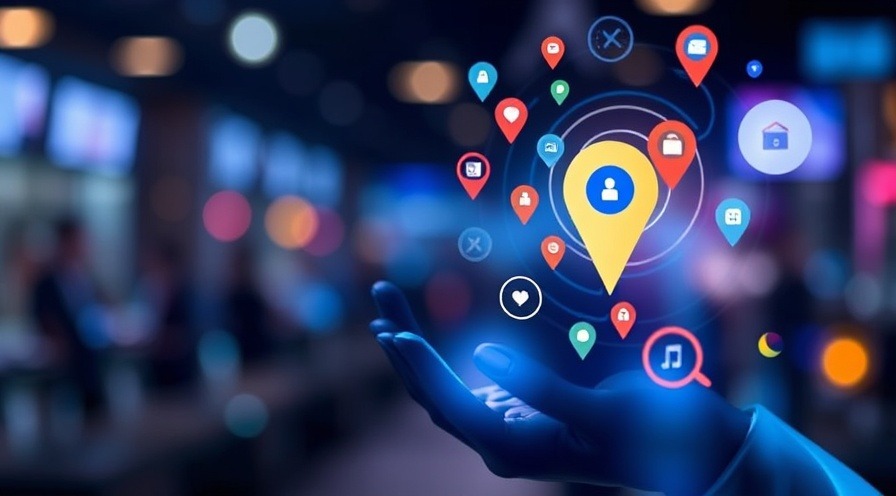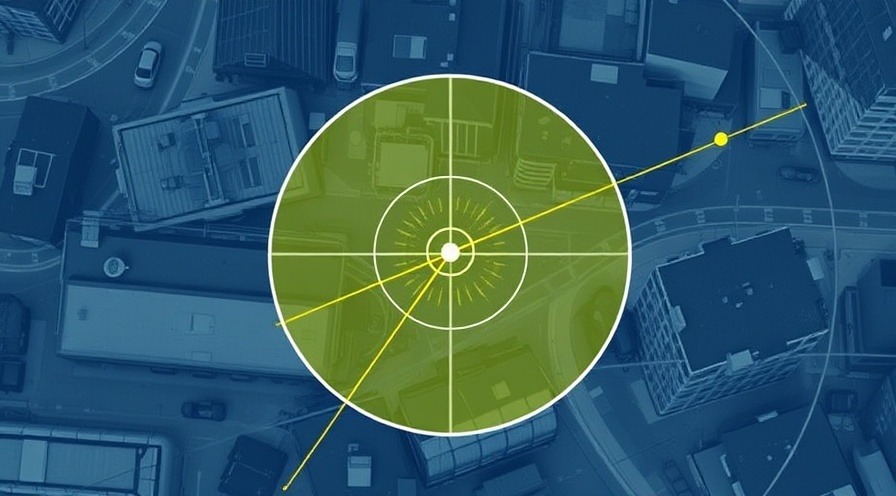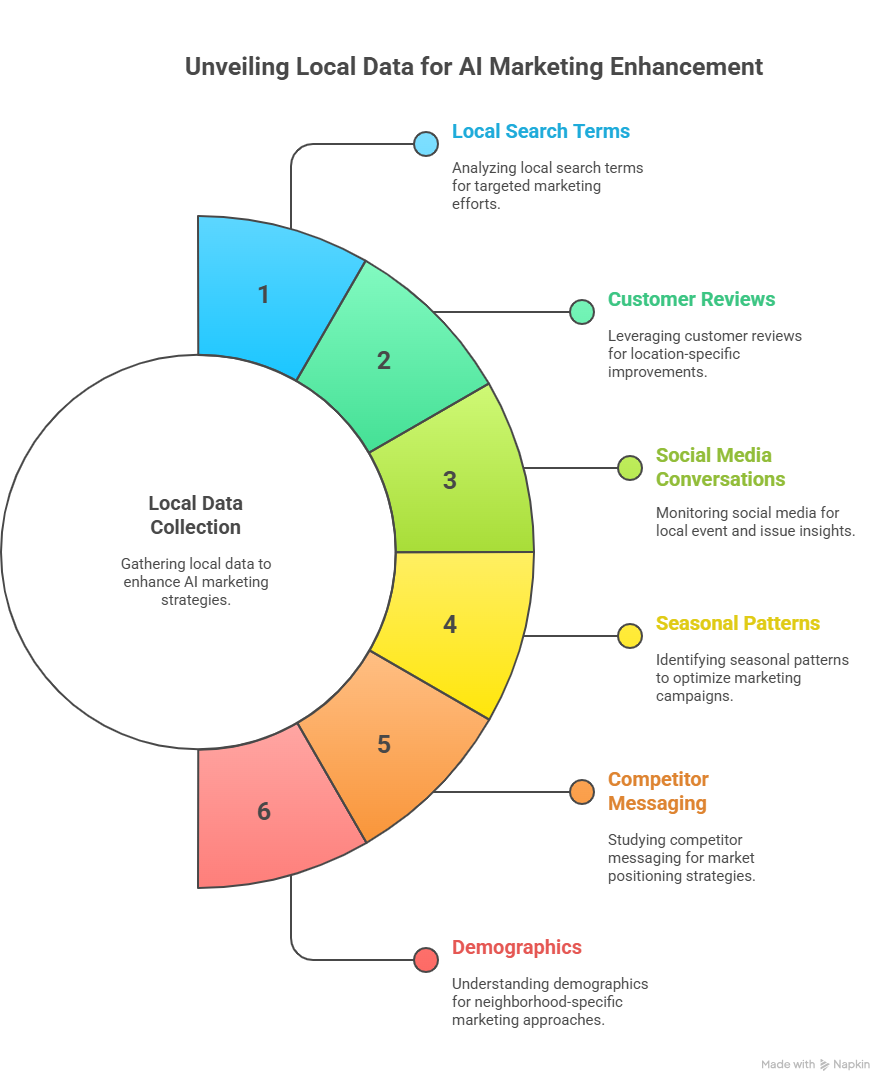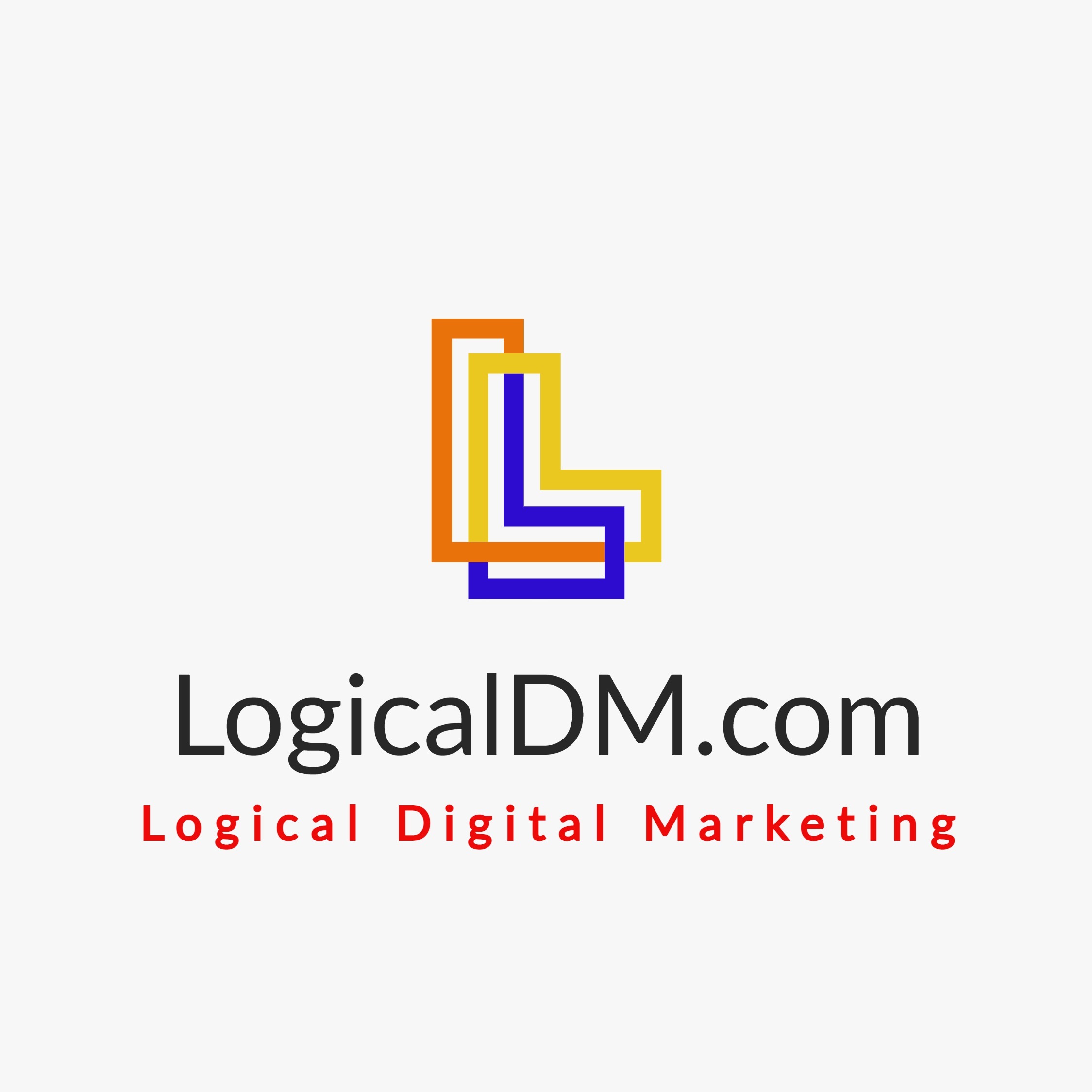
Local Marketing Magic: How AI Transforms Small Business Reach
Local businesses face a unique challenge: how to stand out in their own backyard while competing with global giants. The secret weapon that's changing the game? Artificial intelligence. But this isn't about robots taking over your marketing department, it's about smart tools that amplify what makes your local business special.
The Hyperlocal Revolution: AI-Powered Community Connections
Remember when "local marketing" meant hanging flyers at the coffee shop? Those days are long gone. Today's AI tools can analyze neighborhood-specific data to create campaigns that feel like they were crafted by a longtime resident who knows exactly what the community wants.
Instead of bland, generic messages like "Great deals for everyone!" (yawn), AI helps you craft something with local flavor: "Exclusive Holiday Discounts for Main Street Shoppers in Riverdale – Because We Know Winter Parking Is Already Punishment Enough!" Now that's speaking the local language!
The beauty of hyperlocal campaigns is that they acknowledge the unique characteristics of your community. When customers feel recognized, they're more likely to engage with your brand. It's like the difference between getting a mass text saying "Hey you" versus one that mentions that pothole on 5th Street everyone complains about.
SEO with a Local Accent: Keywords That Bring Neighbors to Your Door
If you've ever wondered why your competitor across town seems to show up in every local search, the answer might be AI-optimized local SEO. Advanced keyword tools can identify search terms specific to your neighborhood or city that regular keyword research might miss.
These aren't just any keywords—they're the digital equivalent of local slang. While everyone else is targeting "best coffee shop," you could be ranking for "cozy study spot near Westside Community College" or "where to get fair trade lattes in Hillcrest."
AI tools can suggest content topics that blend relevance with local interest:
"The Best Indian Restaurants in Oakville and How to Market Like Them"
"Why Darlington Businesses Are Investing in Digital Ads This Year"
"Local SEO Secrets: How Downtown Shops Are Outranking Chain Stores"

Personal Messages That Feel Like They're From a Neighbor, Not a Corporation
Ever receive an email that felt so personalized you checked if it was sent to the wrong person? That's the power of AI-driven messaging. By analyzing local communication patterns, AI can help adapt your tone to match community preferences.
In some neighborhoods, a casual "Hey there!" works best, while others respond to more formal approaches. AI can detect these nuances and help tailor your messages accordingly. It's not about manipulation—it's about speaking the language of your community.
This personalization extends across platforms, from email subject lines that mention local events to SMS campaigns that acknowledge regional weather patterns. "Rainy day special! Show this text for 15% off umbrellas today" hits differently when it's actually pouring outside.
Geo-Targeted Advertising: Precision, Not Carpet Bombing
Remember throwing handfuls of business cards from a hot air balloon and hoping they land in the right yards? That's essentially what non-targeted digital advertising is like. AI-powered geo-targeting, on the other hand, is like having a personal courier deliver your message to exactly the right doorsteps.
Platforms like Google and Facebook offer incredible geo-targeting options, but AI takes this further by analyzing past performance to determine:
Which neighborhoods respond best to which offers
Optimal times to reach local customers (hint: it varies by community!)
Ad copy that resonates with specific local demographics

The Voice of the Community: AI-Enhanced Review Intelligence
Your customers are already talking about you—AI helps you understand what they're saying. By analyzing reviews across Google, Yelp, and social media, AI tools can identify patterns in local feedback that might otherwise go unnoticed.
Does your downtown location get praise for friendly staff while your suburban branch excels at speedy service? AI can spot these trends and help you double down on strengths or address concerns before they become patterns.
Your AI-Powered Local Marketing Action Plan
Start with Local Data Mining: Use AI tools to discover what makes your community tick. What local events drive engagement? Which neighborhood issues matter most?
Create Hyper-Specific Customer Personas: Go beyond basic demographics to understand the "Bailey from Bridgeport" who wants sustainable products versus "Mark from Midtown" who prioritizes convenience.
Test, Learn, Repeat: Use AI to run localized A/B tests. Maybe the east side of town responds better to email while the west side engages more on Instagram.
Embrace Visual Localization: AI can generate or modify visuals to include local landmarks or seasonal elements that resonate with your community.
Conclusion
By fusing AI's analysis with your deep understanding of the community you serve, you will generate marketing that appeals not only to the local audience but also to the locals themselves. In a world where global messaging is generic, that local connection may be your strongest competitive advantage.

Frequently Asked Questions: AI for Local Marketing
What is AI-powered local marketing?
AI-powered local marketing uses artificial intelligence tools to analyze data, identify local trends, and create highly targeted marketing campaigns specific to geographical areas. It helps businesses connect more effectively with local customers through personalized, relevant messaging based on community preferences and behaviors.
How much does AI marketing technology cost for a small local business?
Costs vary widely depending on the tools and level of sophistication. Many platforms offer tiered pricing starting from $50-200 per month for basic features. Some social media platforms include AI-powered ad targeting in their standard advertising costs. There are also free or low-cost entry-level tools to help you get started without a significant investment.
How can I measure if AI is actually improving my local marketing results?
Track metrics like:
Increase in local search rankings for targeted keywords
Engagement rates on localized content versus generic content
Conversion rates from geo-targeted ads
Customer acquisition costs for local campaigns
Foot traffic or local website visits from specific neighborhoods Most AI marketing platforms include analytics dashboards that help track these metrics automatically.
What types of local data should I collect to improve my AI marketing?
Focus on:
Local search terms and questions people ask about your industry
Customer reviews mentioning specific locations or local concerns
Social media conversations about local events or issues
Seasonal patterns unique to your area
Competitor messaging in your local market
Demographics specific to different neighborhoods you serve

How often should I update my AI-driven local marketing strategy?
Local markets are dynamic, so quarterly reviews are recommended at minimum. However, certain elements may require more frequent attention:
Update seasonal messaging monthly
Revise keyword targeting every 2-3 months
Adjust geo-fencing for promotions based on local events
Review and respond to AI-identified trends in customer feedback weekly
Can AI help my business compete with larger national chains in my local area?
Absolutely! This is where AI offers a significant advantage for local businesses. While national chains use broad marketing approaches, AI helps you identify and leverage hyper-specific local knowledge that larger competitors might miss. Your ability to connect authentically with local customers, enhanced by AI insights, can be a powerful differentiator.
What's the first step I should take to implement AI in my local marketing?
Start by conducting a local SEO audit to understand how your business currently appears in local searches and what opportunities exist. LogicalDM.com can help you identify quick wins and develop a strategic roadmap.
 Add Row
Add Row  Add
Add 

